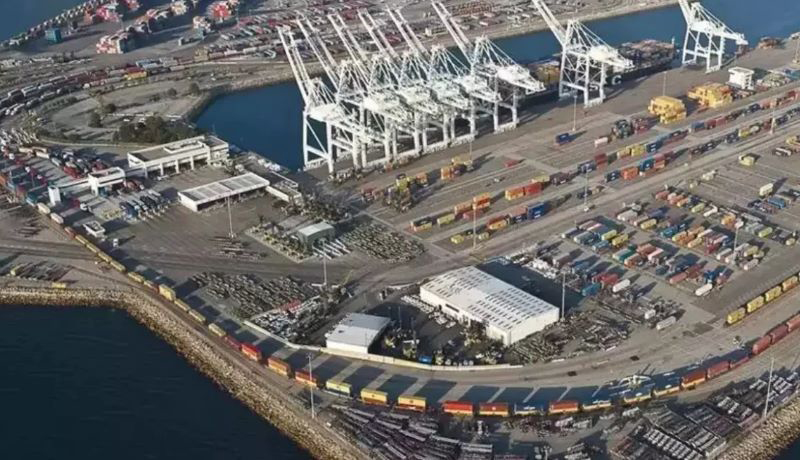 Chabahar Port
Chabahar Port
How India-backed Chabahar Port can transform Afghanistan
In a significant move this month, India and Iran inked a landmark 10-year pact, inclusive of a renewable clause, for the continued development of the Chabahar Port.
This agreement marks a pivotal moment for regional cooperation, particularly highlighting Afghanistan’s integral role in the success of this strategic project.
The interim Taliban government, in a statement released Wednesday, underscored the profound economic benefits that Afghanistan stands to gain from the India-backed Chabahar Port project. The statement emphasized the necessity of “political support” from Afghanistan to sustain and maximize the project’s potential.
Chabahar Port offers Afghanistan a crucial alternative to the Karachi port, thereby reducing the nation’s reliance on a single trade corridor and bolstering its economic independence. This diversification is vital for Afghanistan’s economic stability and growth, allowing it to engage with a broader spectrum of trading partners across India, Central Asia, and beyond.
The strategic importance of Chabahar cannot be overstated. As a direct maritime route to the Indian Ocean, the port significantly enhances Afghanistan’s trade capabilities. This development is not merely a logistical improvement but a transformative opportunity for the landlocked nation to access global markets and integrate more deeply into the regional economy.
Reflecting on the historical significance of Chabahar, the Taliban’s statement traced its roots back to the Achaemenid Empire (550–330 BCE), highlighting its longstanding role as a trading nexus.
The port’s prominence continued through the Sassanian Empire (224–651 CE), serving as a critical link between Persia, the Indian subcontinent, and other regions.
This historical context underscores Chabahar’s enduring importance as a hub of commerce and connectivity.
The 2016 trilateral agreement between India, Iran, and Afghanistan for the development of Chabahar as a transportation and trade corridor set the stage for this recent accord.
The current pact further solidifies the collaborative efforts to transform Chabahar into a gateway for global trade, promising to bring prosperity and economic diversification to Afghanistan.
For Afghanistan, active participation and cooperation are paramount.
The success of Chabahar Port hinges on Afghanistan’s commitment to leveraging this opportunity for enhanced trade connectivity and regional integration.
The port stands as a symbol of hope and potential, offering a path towards economic resilience and prosperity.
The Chabahar Port project is more than an infrastructure development; it is a beacon of economic transformation for Afghanistan.
By embracing this opportunity, Afghanistan can pave the way for a brighter, more connected future, securing its place in the global economic landscape.
The commitment of India, Iran, and Afghanistan to this project reflects a shared vision of regional growth and stability, promising a new era of economic cooperation and development.
(Photo and text courtesy: Khalsavox.com)
Support Our Journalism
We cannot do without you.. your contribution supports unbiased journalism
IBNS is not driven by any ism- not wokeism, not racism, not skewed secularism, not hyper right-wing or left liberal ideals, nor by any hardline religious beliefs or hyper nationalism. We want to serve you good old objective news, as they are. We do not judge or preach. We let people decide for themselves. We only try to present factual and well-sourced news.







